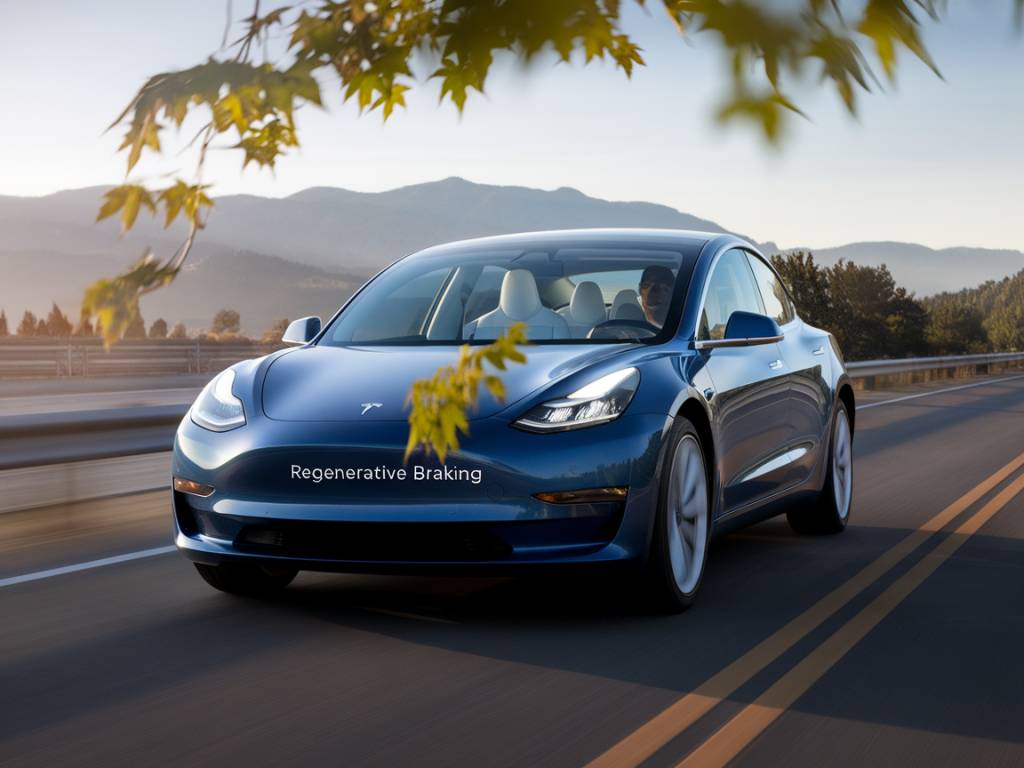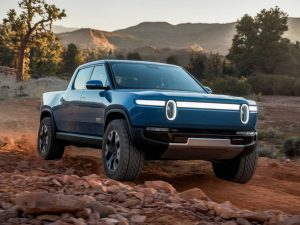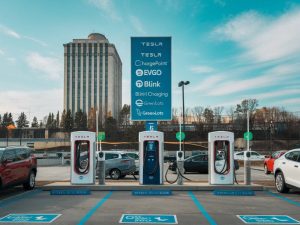The importance of regenerative braking systems in modern evs

the importance of regenerative braking systems in modern evs
Understanding Regenerative Braking Systems
As electric vehicles (EVs) become more prevalent on the roads, there is increasing interest in the technologies that make them function more efficiently and sustainably. One such technology is the regenerative braking system. Regenerative braking is a crucial feature of modern EVs, and understanding its importance can help consumers make more informed decisions when considering the purchase of an electric vehicle.
What is Regenerative Braking?
Regenerative braking systems are a mechanism utilized in electric vehicles to recapture energy that would otherwise be lost during braking. Traditional braking systems utilize friction to slow down the vehicle, converting kinetic energy into heat, which is dissipated into the air. In contrast, regenerative braking captures this kinetic energy and converts it back into electrical energy, which is then stored in the vehicle’s battery for later use.
How Regenerative Braking Systems Work
During deceleration, the electric motor that drives the wheels of the vehicle operates as a generator. Instead of consuming electrical energy to produce motion, the system harnesses the kinetic energy of the moving vehicle to generate electricity. This process slows down the vehicle and simultaneously recharges the battery.
Several key components work together to make this possible:
- Electric Motor/Generator: Acts as both the propulsion unit and the generator.
- Inverter: Converts the generated electricity to a form that can be stored in the battery.
- Battery System: Stores the recovered electrical energy for future use.
The Benefits of Regenerative Braking Systems
Regenerative braking offers numerous advantages, both for the vehicle owner and the environment.
Increased Energy Efficiency
One of the most significant benefits of regenerative braking is enhanced energy efficiency. By recovering and reusing energy that would otherwise be wasted, electric vehicles can travel further on a single charge. This efficiency means fewer charging stops and lower overall energy consumption, which can translate to cost savings for the consumer.
Reduced Wear and Tear
Traditional braking systems rely heavily on brake pads and discs, which wear out over time and require replacement. Regenerative braking systems reduce the dependency on these components, as the primary method of slowing the vehicle involves energy recapture rather than friction. This reduction in wear and tear not only decreases the need for frequent maintenance but also extends the lifespan of the braking system.
Lower Environmental Impact
Reducing energy consumption and minimizing maintenance needs also brings environmental benefits. Regenerative braking helps lessen the overall carbon footprint of electric vehicles by increasing their efficiency. Additionally, by extending the life of brake components, the production of spare parts is minimized, which further reduces the environmental impact.
Challenges and Considerations
While regenerative braking technology offers many advantages, there are some challenges and considerations to keep in mind. One key challenge is the variability in braking feel. Traditional friction braking provides a consistent and familiar feel for drivers; however, regenerative braking can sometimes result in a different and, to some, less predictable experience. Manufacturers are continually working to refine the transition between regenerative and friction braking to create a more seamless driving experience.
Another consideration is the efficiency of energy recapture. Not all energy can be recovered during braking. Factors such as the speed of the vehicle, the state of charge of the battery, and the specific driving conditions play a role in how much energy is recaptured. Nonetheless, even partial energy recovery significantly contributes to overall efficiency.
Advancements and Future Trends
The future of regenerative braking systems looks promising, with ongoing advancements aimed at improving their efficiency and integration. Innovations in battery technology, for example, are enhancing the energy storage capabilities of regenerative braking systems. Investments in integrating more sophisticated control systems and algorithms are also optimizing the balance between regenerative and traditional braking.
Moreover, as autonomous driving technology continues to evolve, regenerative braking is expected to play a crucial role. Autonomous vehicles will rely heavily on highly efficient energy management systems, where regenerative braking will be essential for maximizing the driving range and minimizing energy wastage.
Choosing an Electric Vehicle with Regenerative Braking
For prospective electric vehicle buyers, understanding the regenerative braking system is essential. Here are some tips to consider when evaluating EV options:
- Test Drive: Pay attention to how the regenerative braking feels and how seamlessly it integrates with the traditional braking system.
- Battery Capacity: Look for vehicles with higher battery capacities which can store more energy from the regenerative braking system.
- Efficiency Metrics: Investigate the vehicle’s efficiency ratings, including how effectively it utilizes regenerative braking to extend driving range.
- Manufacturer Innovations: Research innovations and improvements specific to different manufacturers, as advancements can vary significantly.
The Growing Importance of Energy Recapture
As the world adopts cleaner and more sustainable forms of transportation, technologies like regenerative braking are becoming increasingly important. Energy recapture and reutilization not only enhance the performance of EVs but also play a crucial role in achieving broader environmental goals. The continued development and refinement of regenerative braking systems promise to make electric vehicles an even more attractive and viable option for consumers globally.
In conclusion, regenerative braking systems are a vital component of modern electric vehicles, offering improved energy efficiency, reduced wear and tear, and lower environmental impact. As technology advances, these systems are set to become even more efficient and integral to the performance and sustainability of future EVs. Prospective EV buyers should consider the benefits of regenerative braking systems when making their purchasing decisions, and stay informed about ongoing technological advancements in this area.





